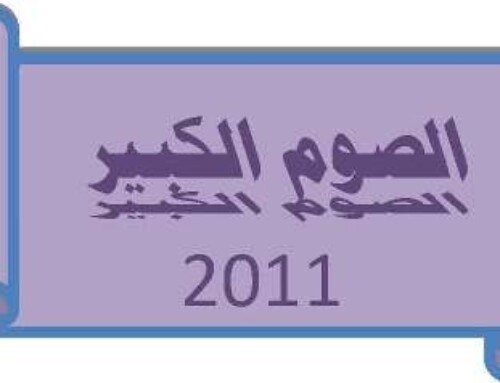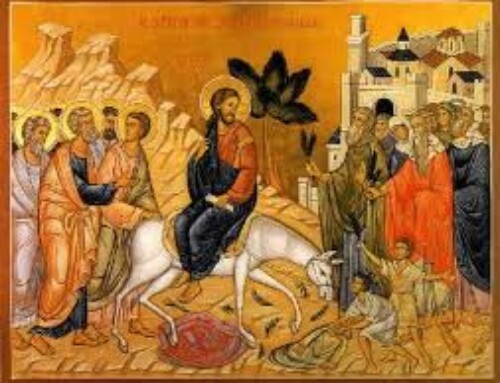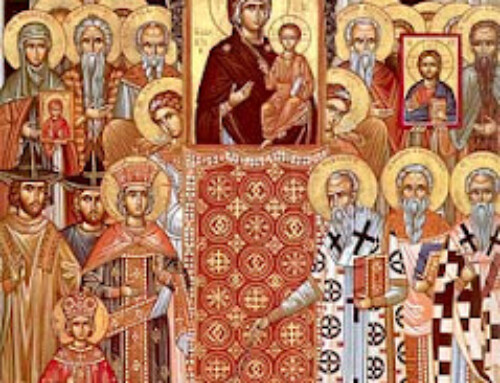الصفحة الرئيسية
المطران
إيماننا وعقيدتنا
جديد في الموقع
Word Magazine May 1959 Page 4
THE LENT . . . .
PERIOD OF FASTING
By Rt. Rev. Dr. M. Khallouf
Pastor, St. George Orthodox Church, Utica, N.Y.
The Orthodox Churches in all the world start their Great Lent this year on Monday, March 16; consequently, Easter will be celebrated on the third day of May, because Jesus Christ has risen from the dead after the Jews started their Passover, and the first Ecumenical Council held in the year 325 AD. in the city of Nicaea (where the Nicene Creed was formulated) ordered to celebrate the Holy Easter neither before nor with the Jews. Since the Jewish Passover will be celebrated this year on April 26, therefore, the Orthodox Easter will be celebrated on the first Sunday after that date, that is, on the third of May, 1959.
Now the word Lent is derived from Anglo-Saxon lengten which means spring or vernal fast, however, in our Church we have four fasts: the first one is of 40 days duration, from November 15 to December 24, as preparation for Christmas or Nativity of our Lord Jesus. The second which the present one is also of 40 days duration, but followed by notable events (Lazarus’ Saturday, Palm Sunday and Holy Passion Week) is observed as a special preparation for the Holy Easter. The beginning and the end of this great fast vary very much (in both Eastern and Western churches) due to some regulations which neither time nor space permit to fully explain. The third one is of fourteen clays, from 1-14 of August as preparation for the falling asleep of our Lady, the Most Holy Theotokos and Ever Virgin Mary. And, the fourth one is observed in honor of the glorious saints Peter and Paul, heads of the Apostles and founders of the Holy See of Antioch where the disciples of Jesus Christ were for the first time called Christians.
Beside these main four fasts we are taught to fast every Wednesday and Friday, except for some special occasions when the fast is not required. The fast on Wednesday was established because on this day the council of Jesus’ enemies convened and falsely conspired against Him to deliver Him to die. As to the Friday’s fast — because on this day Jesus was betrayed, delivered to and crucified by His enemies. Therefore, the total days of fasting during the entire year are approximately 150.
I do not doubt that some so-called modern men will question the validity or usefulness of fasting; even some newly translated Bibles excluded the word “Fast” from some verses, and some Bible dictionaries said that Jesus’ fast was imposed on him by necessity because, being in the wilderness, He did not find food to eat, as if He were nailed or bound with a chain in the wilderness. You wonder sometimes why such “scientists” or “theologians” distort the facts in order to make a false conclusion; that is to say that the fast is meaningless and harmful. If we venture to eliminate the words “fast” and “fasting” from all the Bible we would disfigure the Bible entirely. But, if we investigate the history of Christianity we will find that in all the places where the Gospel was preached and received, the fasting also was taught and practiced. The Church believes that it is very beneficial to observe from time to time a total or partial abstinence from some kind of foods — especially the kinds containing excess of uric acid, the main cause of rheumatism, sciatica, arteriosclerosis, high blood pressure, gravel, sand, kidney stones, etc. This belief is in a full agreement with the newest teaching of leading American and European authorities on food and health (diet), because physically we are what we eat. Therefore, by recommending a total or partial abstinence from certain kinds of food, the Church wanted to render a highly useful service to the people physically and spiritually, because “mens sana in corpore sano” (a sound mind in a sound body) and because the human body is a kind of vehicle for the soul. Therefore this vehicle must be healthy, sound and pure, so that it becomes easier for the soul to manage it, directing it to a spiritually agreeable life. That is why we notice that our Church with all her concern about the salvation of the human soul does not neglect nor overlook the well-being and prosperity of the human body, mentioning it even in her prayers. Here are some specimen of prayers concerning this matter: “Let us begin, she says, the season of fasting with rejoicing, giving ourselves to spiritual strife, purifying soul and body, fasting from passions, as we fast from food, faring on the virtues of the spirit,” and, when Adam received of the food as a transgressor was he driven from paradise. But Moses, purifying the pupils of his eyes with fasting, was made worthy to behold God. “Wherefore, ye who long to dwell in paradise, come, let us keep far from unprofitable food and ye who desire to see God, come, let us fast the four Mosaic tens. And by perseverance and sincerity in prayer we shall put down the passions of the soul and remove the wiles of the flesh, ascending lightly towards the celestial way, where the ranks of angels praise the indivisible Trinity.”
My final word on this subject is my personal testimony about the indescribable benefit I obtained from my total fast which lasted from March 11 to April 27, 1929, that is forty-seven days. It goes without saying that I do not recommend such a long fast to any one without consulting his or her doctor.



